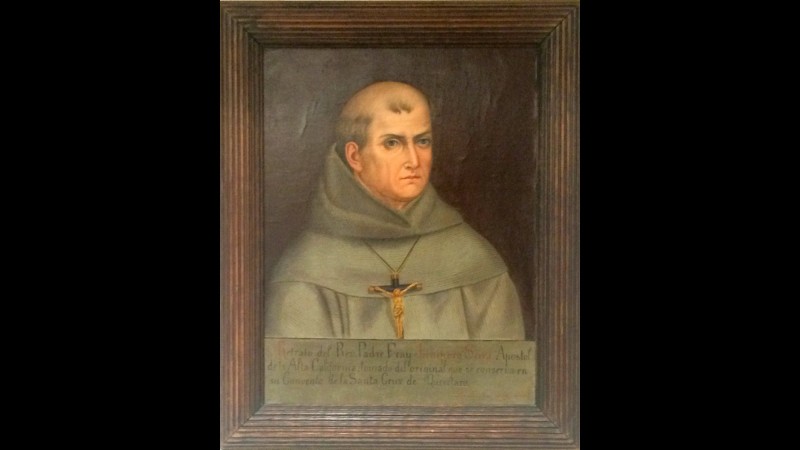While in Washington, Pope Francis canonized a Spanish missionary buried at a mission in California. Over the weekend, a statue of the new saint was vandalized.
Staff at the Carmel Mission Basilica found the courtyard statue of St. Junipero Serra toppled and splattered with paint. Police are investigating, the basilica said on its Facebook page.
“Apparently a person or persons broke in, splattered paint and toppled down the courtyard statue of St. Serra and other historic statues on display,” the post said.
Other parts of the mission near Monterey Bay were also vandalized, including tombstones and other statues, police told CNN affiliate KSBW.
Within hours of reporting the vandalizing, volunteers came out to clean up the mess, the basilica said.
Police told KSBW that only the gravestones of Europeans were damaged and that those of Native Americans buried at the basilica were not. But they have not named any suspects in the case.
Native American controversy
The canonization, the first ever on U.S. soil, was a high point of the Pope’s visit to the United States for many Latino faithful. But St. Serra is controversial with many California Native Americans.
Serra came to California nearly 250 years ago.
“Junipero Serra left his native land and its way of life,” Francis said in his homily during the canonization Mass at Catholic University in Washington. “He was excited about blazing trails, going forth to meet many people, learning and valuing their particular customs and ways of life.”
He said Serra defended the dignity of Native Americans.
That outraged some who disagree.
“We’re stunned and we’re in disbelief,” said Valentin Lopez, 63, chairman of the Amah Mutsun Tribal Band located along Monterey Bay in California.
“There was no Jesus Christ lifestyle at the missions,” Lopez said, who has campaigned against sainthood for Serra.
Many tribes in California condemned the sainthood, saying that Catholic missions in early times killed many Native Americans and stepped on their dignity.
